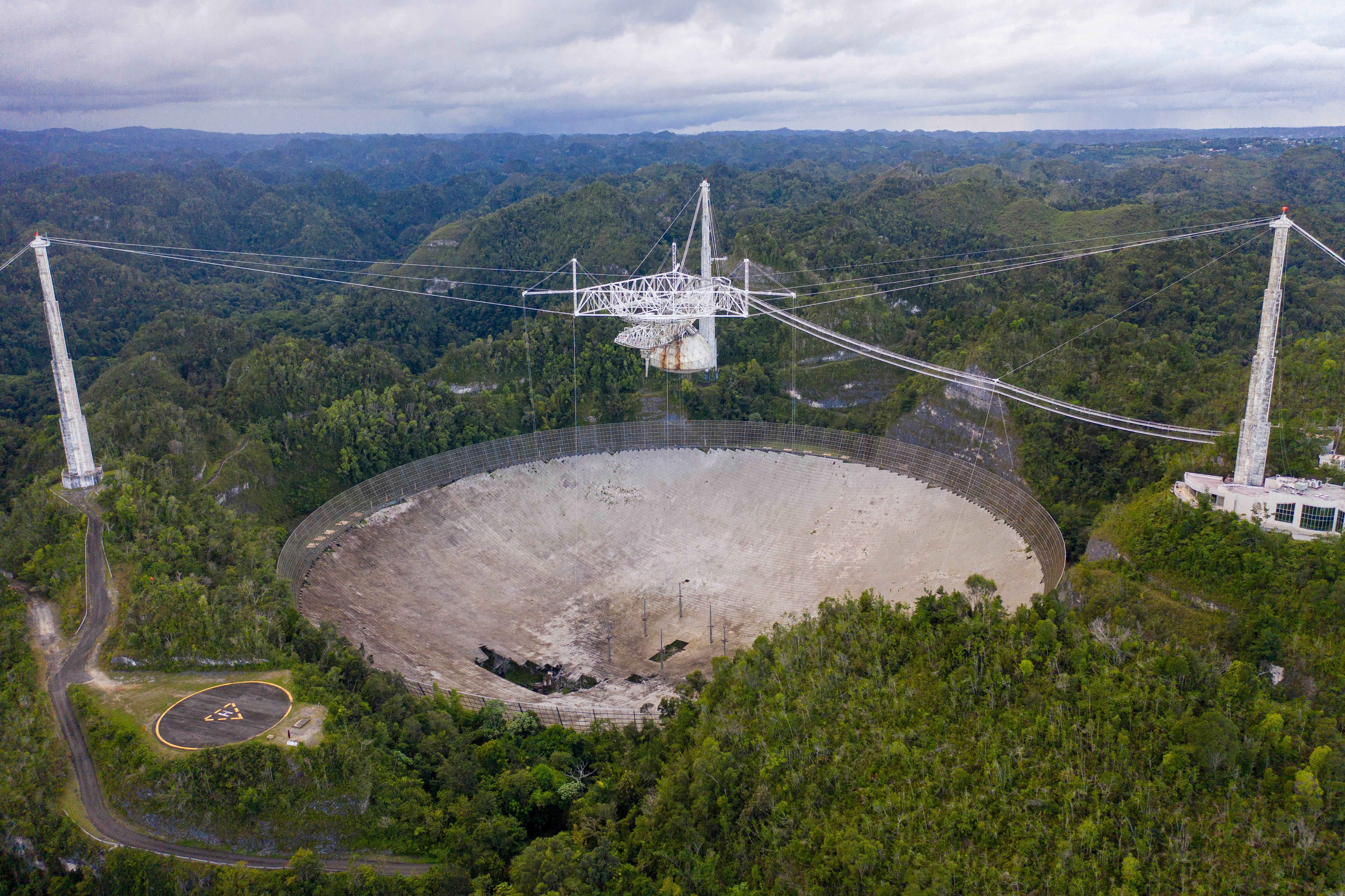‘It was a real challenge’: Arecibo observatory classifies sneaky asteroid from 2019
Scientists have confirmed the asteroid that buzzed Earth in 2019 won’t pose a threat — at least not for centuries to come

Your support helps us to tell the story
From reproductive rights to climate change to Big Tech, The Independent is on the ground when the story is developing. Whether it's investigating the financials of Elon Musk's pro-Trump PAC or producing our latest documentary, 'The A Word', which shines a light on the American women fighting for reproductive rights, we know how important it is to parse out the facts from the messaging.
At such a critical moment in US history, we need reporters on the ground. Your donation allows us to keep sending journalists to speak to both sides of the story.
The Independent is trusted by Americans across the entire political spectrum. And unlike many other quality news outlets, we choose not to lock Americans out of our reporting and analysis with paywalls. We believe quality journalism should be available to everyone, paid for by those who can afford it.
Your support makes all the difference.In July 2019, the asteroid 2019 OK came screaming out of the glare of the Sun where astronomers find it difficult to detect such small, faint objects, and passed within 45,000 miles of Earth while traveling at 5,487 miles per hour. That’s well inside the Moon’s average orbit of around 238,000 miles.
Despite the close call, 2019 OK didn’t pose a threat to life on Earth, but asteroids like it one day could. That’s why scientists at the Arecibo radio astronomy observatory in Puerto Rico raced to make as many radar observations of the space rock as they could in the half hour or so it would remain in range of their antennas. They wanted to learn as much as possible about an asteroid that passed the Earth that closely and quickly.
“It was a real challenge,” Luisa Fernanda Zambrano-Marin, a University of Central Florida planetary scientist who was at Arecibo in 2019, said in a statement. “No one saw it until it was practically passing by, so when we got the alert, we had very little time to act. Even so, we were able to capture a lot of valuable information.”
That information is now published in a new paper in the Planetary Science Journal.
Among Ms Zambrano-Marin and her colleague’s findings is that 2019 OK is a rapidly spinning asteroid, which suggests it is not a “rubble pile” asteroid, but possesses enough internal cohesion to keep from spinning itself apart. They estimate its diameter to be at most, around 450 feet.
They also believe the asteroid is either a C or S type asteroid, the first and second most common type of asteroid in the Solar System. C-type asteroids consist of silicate rocks and clay, while S-types consist of nickel-iron and silicate rocks.
But the most important takeaway from the recently published findings is that regardless of its make up, 2019 OK won’t pose a threat to Earth, at least not any time soon. Based on the Arecibo observations, 2019 OK will only come close to Earth once more between now and the year 2116, and that will be on 28 July, 2093, when it passes within more than 4 million miles of our planet.
Still, the observations of 2019 OK remain good practice for astronomers focused on monitoring the more than 30,000 known near-Earth asteroids that could potentially pose a threat to Earth, and for responding to sneaky, emergent space rocks like 2019. Astronomers at Arecibo are hosting panel discussions ahead of the international Asteroid Awareness Day on Thursday, a campaign to raise public perception of the potential threat of errant space rocks and scientists’ efforts to better understand them.
Join our commenting forum
Join thought-provoking conversations, follow other Independent readers and see their replies
Comments